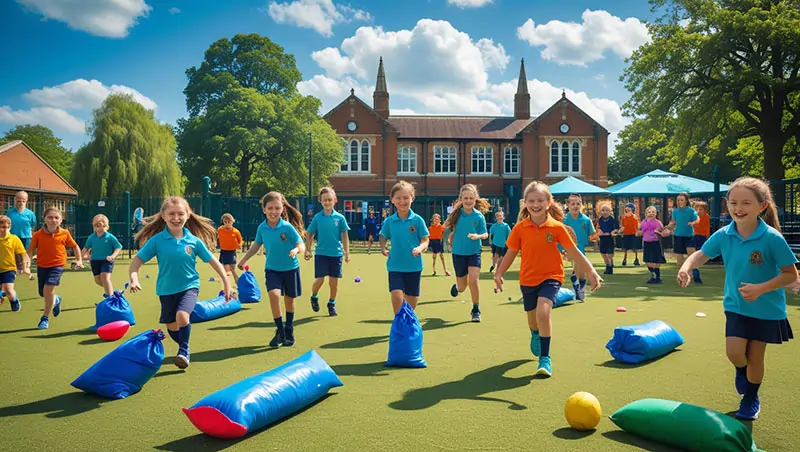Nurturing a Lifelong Love of Learning: A Parent’s Guide

As parents, one of our greatest wishes is to inspire a lifelong love of learning in our children. Education is powerful – it opens doors to opportunities, personal growth, and understanding the world around us in all its complexity and richness. But instilling a genuine excitement for knowledge means going beyond just enrolling kids in classes or forcing homework time. We have to intentionally kindle their curiosity from an early age and nurture an environment where learning is celebrated, not treated as a chore.
The Formative Early Years
Those first few years are absolutely vital for a child’s brain development. It’s when the foundations are built for crucial cognitive abilities like problem-solving, critical thinking, and effective communication skills that will serve them throughout their academic careers and life. Neuroscientists have found that neural pathways for processing and analyzing information are firing at a fevered pitch during this window. By prioritizing enriching, hands-on learning experiences during these formative years, we equip our little ones with an eagerness to explore and discover that will propel their development.
Creating a Stimulating Environment at Home
At home, get creative about surrounding your kids with tools that actively engage their minds in a fun, age-appropriate way. Fill play areas with building blocks and puzzles that inspire spatial reasoning. Stock bookshelves with fiction and non-fiction titles slightly above their reading level to promote comprehension skills. Include toys that spark imagination and prompt questions about how things work, like kiddie workbenches or science kits. But keep their toy boxes fresh – regularly rotating new items prevents boredom from settling in and toys from being permanently forgotten in the depths of the closet.
Don’t limit learning opportunities to just playthings either. Turn routine moments into teachable ones by narrating activities like cooking, gardening, or mandarin classes for kids. Discussing concepts like fractions when measuring ingredients, examining seeds and plant life cycles, or practicing counting items at the grocery store makes education feel seamless and integrated into daily life. You’re demonstrating that learning isn’t just for the classroom.
When your child expresses curiosity about something, seize that opportunity! What may seem like a fleeting, random interest could be a window into topics that truly captivate them. Encourage their questioning, no matter how silly it may sound, and be ready to dive into subjects through age-appropriate books, videos, activities or outings. An environment where questions are welcomed rather than dismissed tells kids that learning never stops because there’s always more to explore and understand about the world.
Embracing Struggles and Failures
The path to mastering new skills or understanding complex subjects is rarely a straight line. Struggles and failures are unavoidable when taking on challenges, as discouraging as they can feel in the moment for young learners. Rather than rushing to rescue your child from every setback, allow them to grapple with obstacles. Offer guidance and coaching to help them work through the problem-solving process, but don’t simply hand them the solution. Praise their effort and perseverance regardless of the outcome to build resilience and a growth mindset oriented toward taking risks and learning from mistakes.
While formal schooling plays an essential role through curricula and credentialed teachers, look for supplemental programs outside the classroom that nurture their specific interests and talents. Extracurriculars like art, coding, language, outdoor education, or maker space programs provide fresh avenues for creative learning beyond the confines of traditional educational settings. These social activities among peers of shared interests facilitate self-discovery and personal growth. It also expands their worldview and exposes them to diverse cultures, philosophies and perspectives.
Acknowledging Milestones and Achievements
Perhaps most importantly, celebrate your child’s achievements – whether it’s a major milestone or seemingly small personal “win.” Sincere recognition for accomplishments through quality time spent reviewing their hard work reinforces that learning is something to feel proud of. Even brief acknowledgments like post-it note affirmations on completed assignments or surprise outings to their favorite ice cream shop can be meaningful motivators. It signals that their intellectual growth is being seen and supported.
In a world overflowing with information and human potential, raising kids who wholeheartedly embrace being lifelong learners gives them the fundamental skills to navigate it all with confidence. It’s an ongoing process without an instruction manual, requiring ample patience, empathy and an open mind from parents and caregivers. There will be bumps along the way when attention wanders or progress plateaus. But the payoff bears fruit each time their eyes light up with wonder at newfound knowledge or skills. By making learning an interactive, joyful, supported experience from day one at home and in the community, we instill invaluable values like resilience, empathy, and an insatiable curiosity about this endlessly fascinating world we all share.

